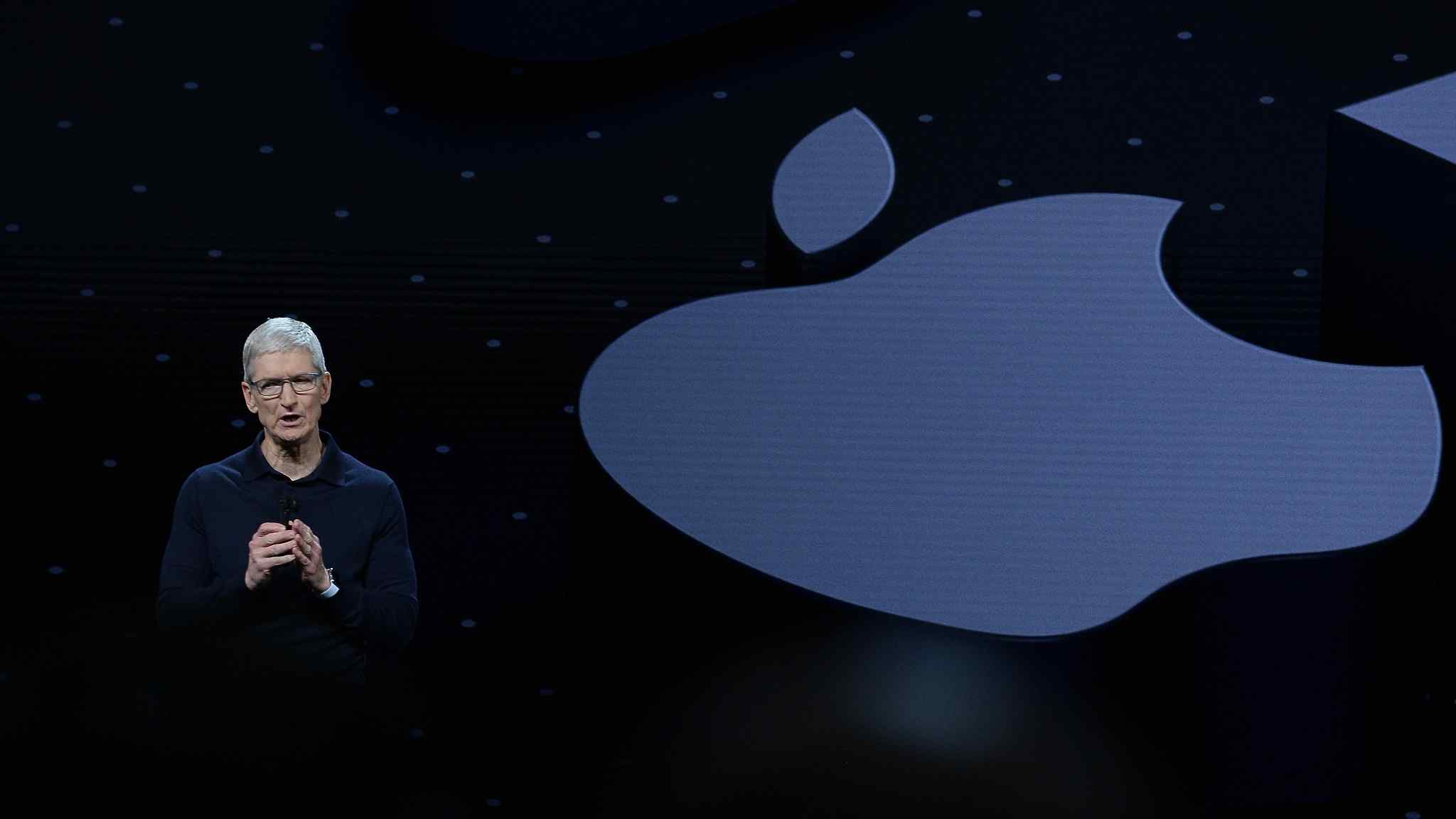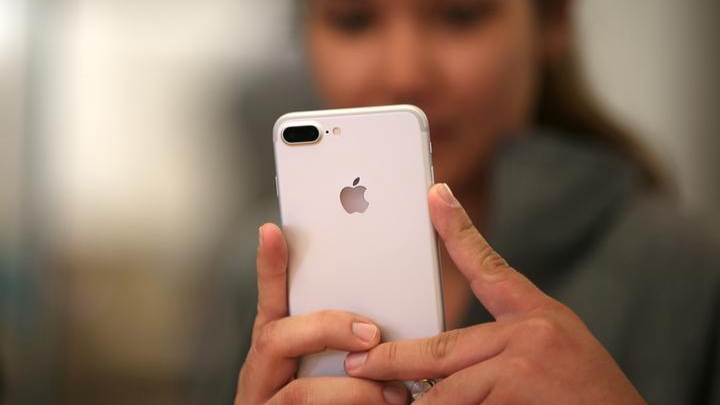
Privacy
21:41, 14-Jun-2018
Apple closing iPhone security gap used by law enforcement
CGTN

Apple is closing a security gap that allowed outsiders to pry personal information from locked iPhones without a password, a change that will thwart law enforcement agencies that have been exploiting the vulnerability to collect evidence in criminal investigations.
The loophole will be shut down in a forthcoming update to Apple’s iOS software, which powers iPhones.
Once fixed, iPhones will no longer be vulnerable to intrusion via the Lightning port used both to transfer data and to charge iPhones. The port will still function after the update, but will shut off data an hour after a phone is locked if the correct password isn’t entered.

The Lightning connecting port is seen on an iPhone 7s during an event in San Francisco, California, US, on Sept. 7, 2016. /VCG Photo
The Lightning connecting port is seen on an iPhone 7s during an event in San Francisco, California, US, on Sept. 7, 2016. /VCG Photo
The current flaw has provided a point of entry for authorities across the US since the FBI paid an unidentified third party in 2016 to unlock an iPhone used by a mass killer in the San Bernardino shooting a few months earlier. The FBI sought outside help after Apple rebuffed the agency's efforts to make the company create a security backdoor into iPhone technology.
Apple's refusal to cooperate with the FBI at the time became a political hot potato pitting the rights of its customers against the broader interests of public safety. While waging his successful 2016 campaign, US President Donald Trump ripped Apple for denying FBI access to the San Bernardino killer's locked iPhone.
In a Wednesday statement, Apple framed its decision to tighten iPhone security even further as part of its crusade to protect the highly personal information that its customers store on their phones.

A customer views the new iPhone 7 smartphone inside an Apple Inc. store in Los Angeles, California, US, Sept. 16, 2016. /Reuters Photo
A customer views the new iPhone 7 smartphone inside an Apple Inc. store in Los Angeles, California, US, Sept. 16, 2016. /Reuters Photo
CEO Tim Cook has hailed privacy as a "fundamental" right of people and skewered both Facebook and one of Apple’s biggest rivals, Google, for vacuuming up vast amounts of personal information about users of their free services to sell advertising based on their interests. During Apple’s 2016 battle with the FBI, he called the FBI's effort to make the company alter its software a "dangerous precedent" in an open letter.
"We're constantly strengthening the security protections in every Apple product to help customers defend against hackers, identity thieves and intrusions into their personal data," Apple said. "We have the greatest respect for law enforcement, and we don't design our security improvements to frustrate their efforts to do their jobs."
Apple said that after it learned of the techniques, it reviewed the iPhone operating system code and improved security. It decided to simply alter the setting, a cruder way of preventing most of the potential access by unfriendly parties.
It got to that point that two different firms, Israel-based Cellebrite and US startup Grayshift, began to sell their services to law enforcement agencies trying to hack into locked iPhones, according to media reports. Grayshift, founded by a former Apple engineer, even markets a 15,000-dollar device designed to help police to exploit the security hole in the iPhone’s current software.

A USB device (L) and SIM cards (R) for Cellebrite UFED TOUCH, a device for the data extraction from mobile devices such as mobile phones or smartphones /VCG Photo
A USB device (L) and SIM cards (R) for Cellebrite UFED TOUCH, a device for the data extraction from mobile devices such as mobile phones or smartphones /VCG Photo
With the changes, police or hackers will typically have an hour or less to get a phone to a cracking machine. That could cut access by as much as 90 percent, security researchers estimated.
This also could spur sales of cracking devices, as law enforcement looks to get more forensic machines closer to where seizures occur. Undoubtedly, researchers and police vendors will find new ways to break into phones, and Apple will then look to patch those vulnerabilities.
[Top image: Apple CEO Tim Cook pictured at Apple's Worldwide Developers Conference (WWDC) 2018 /VCG Photo]
Source(s): AP
,Reuters

SITEMAP
Copyright © 2018 CGTN. Beijing ICP prepared NO.16065310-3
Copyright © 2018 CGTN. Beijing ICP prepared NO.16065310-3